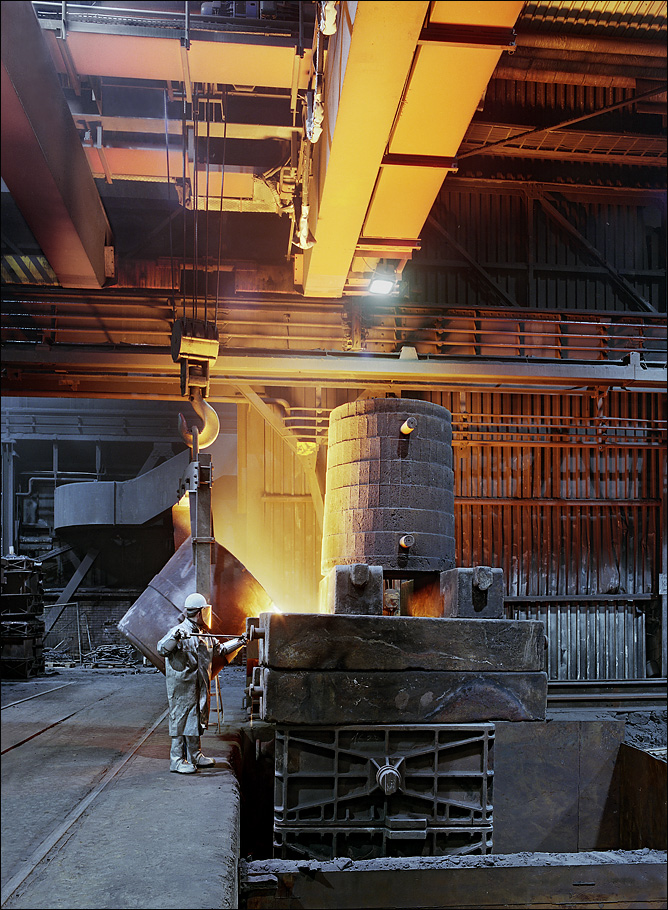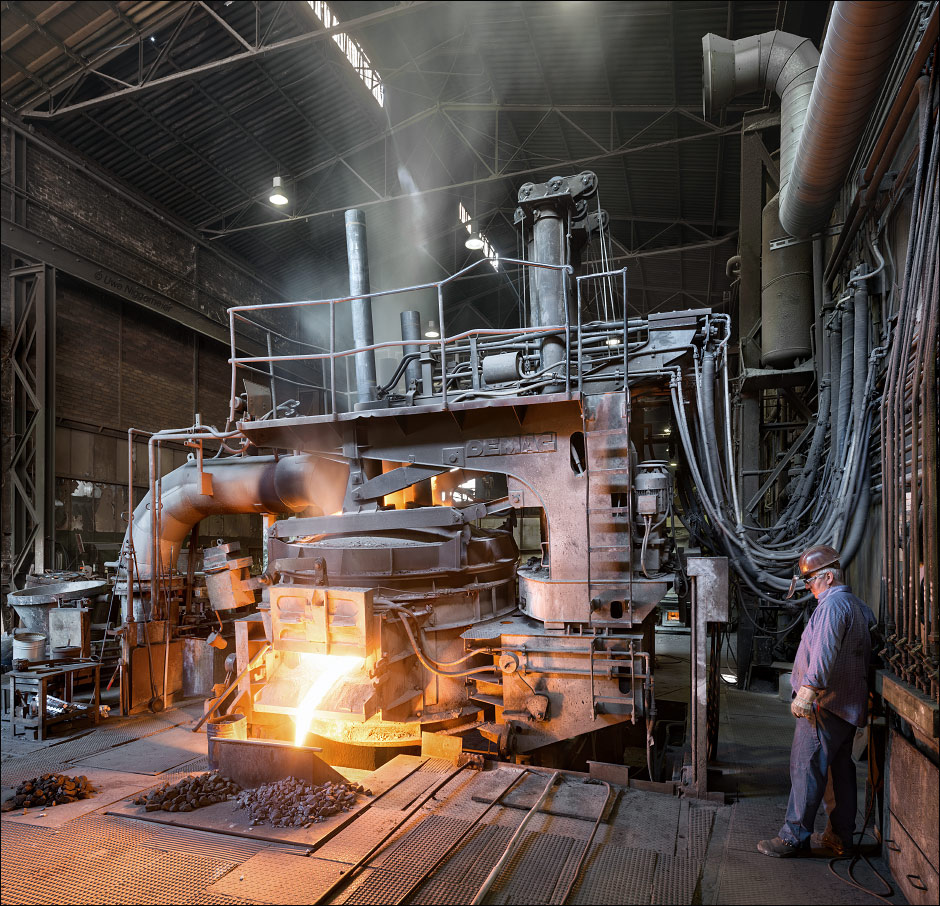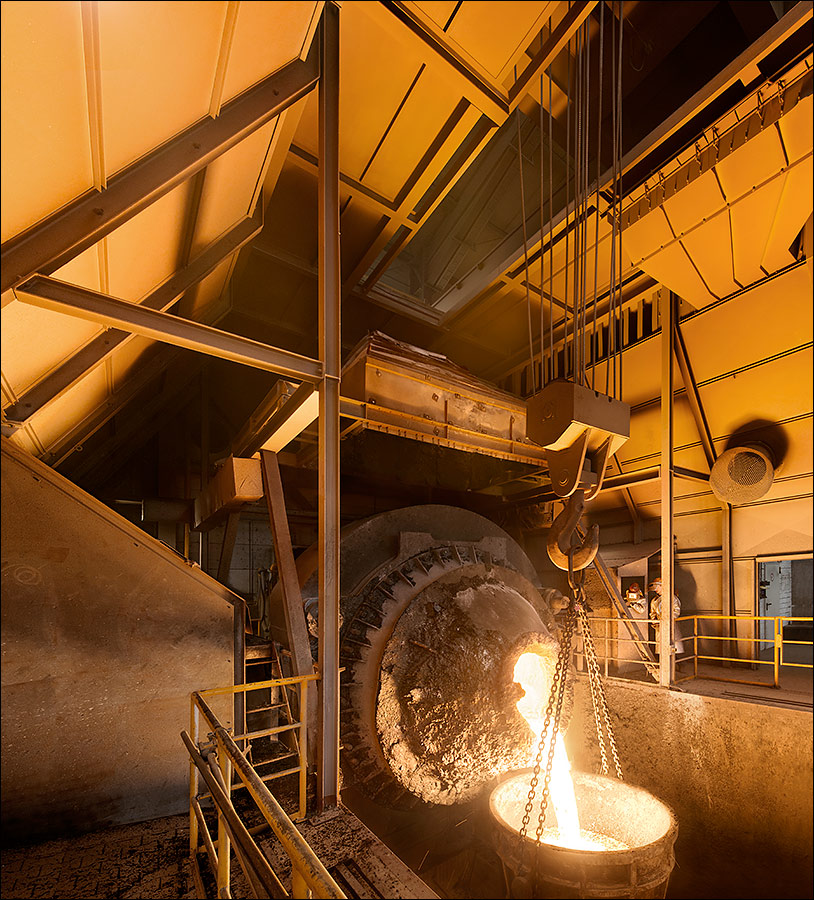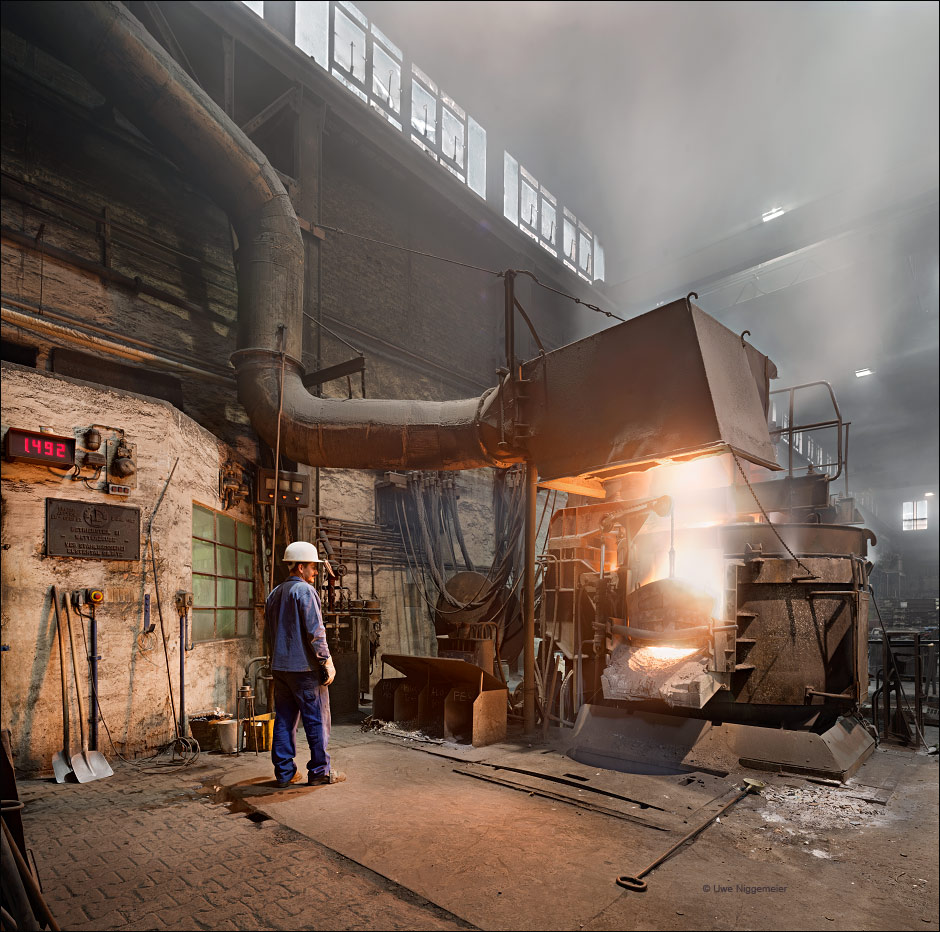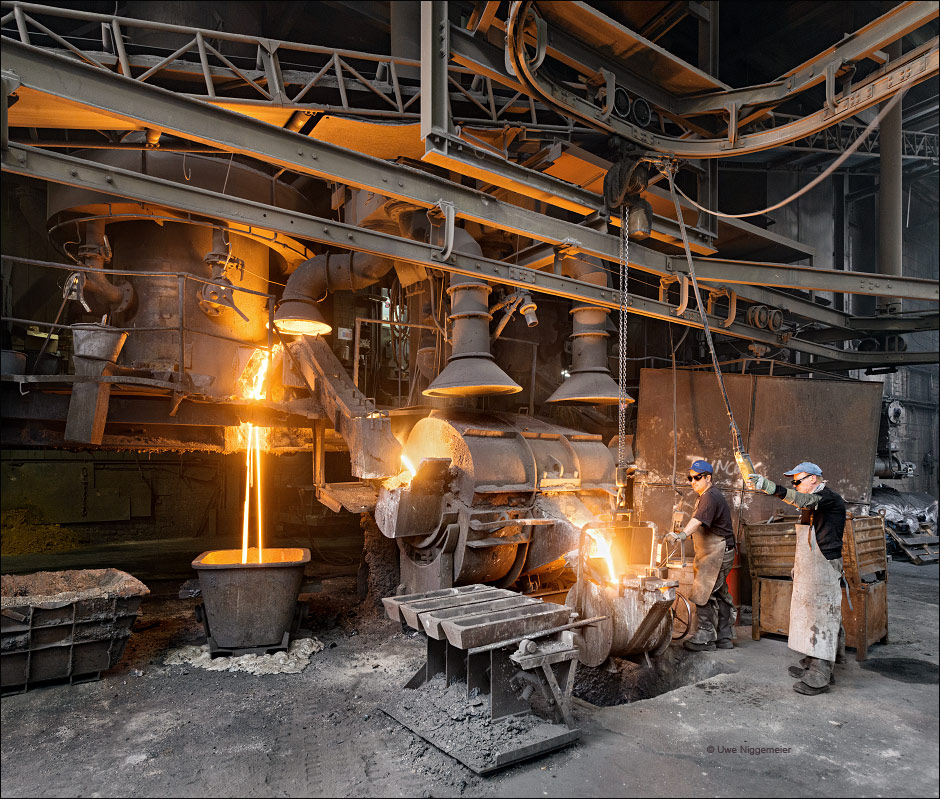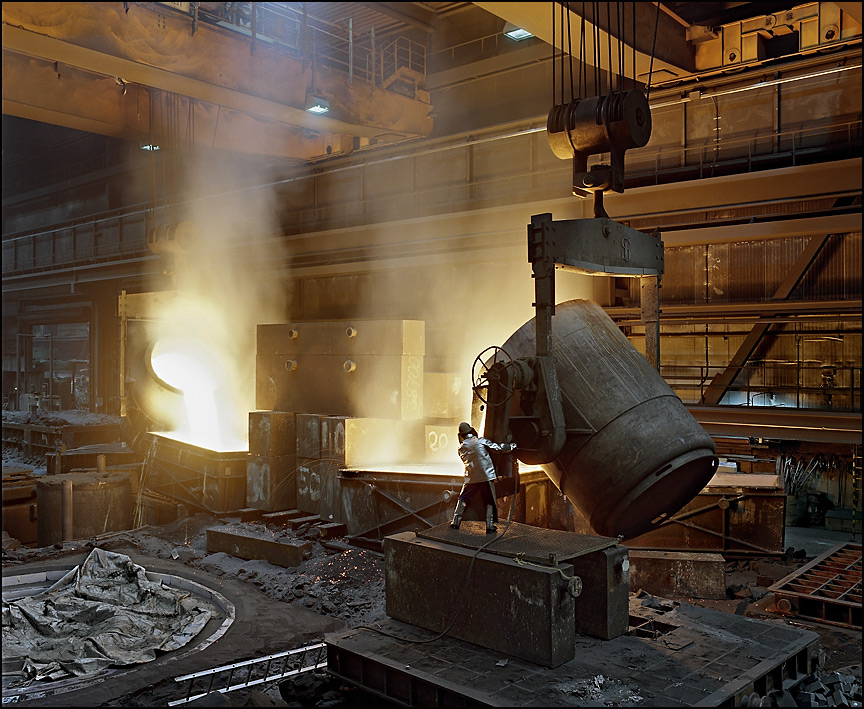
a CASTOR at the Siempelkamp foundry. Krefeld, Germany in 2005.
Tag Archives: Foundry
1899-2019
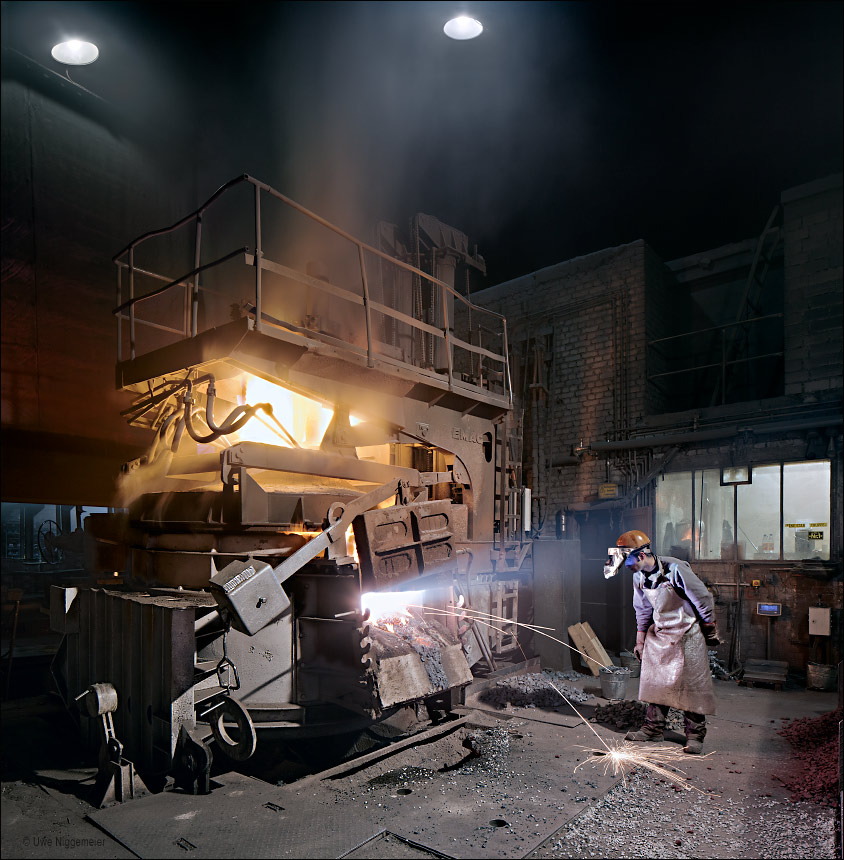
Another German steel foundry had to close it’s gates.
After producing iron and steel castings for 120 years, Schütte Meyer & Co. in Iserlohn-Letmathe made it’s last pour in early April. Images here.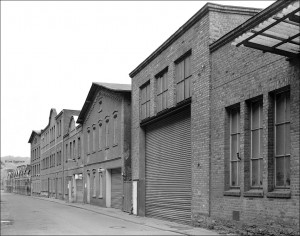
Gienanth, Eisenberg
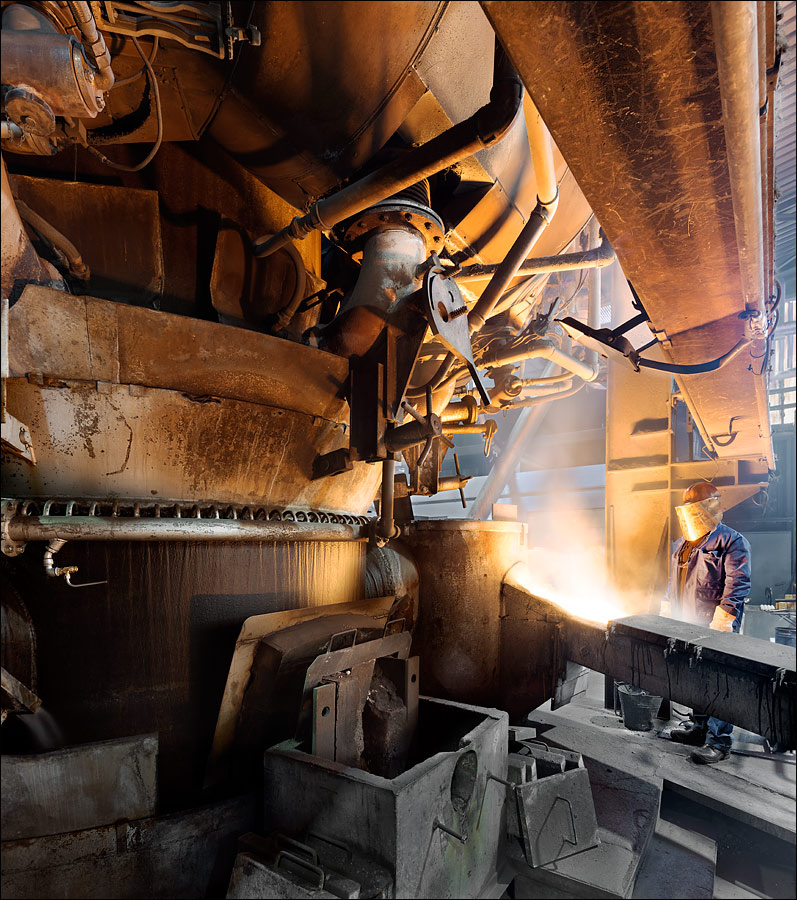
The Gienanth iron foundry in Eisenberg, Germany, founded in 1735, is one of the oldest working industrial enterprises in south-western Germany.
Today the foundry runs a 30t/h hot blast cupola furnace, installed in 1978, four induction furnaces and three 60 ton holding furnaces.
Major products are blocks for stationary and ship diesel engines.
Further images.
Buderus Spezialguss
Steel Foundry
Largest German Steel Foundry
Germany’s Oldest Steel Foundry Closed
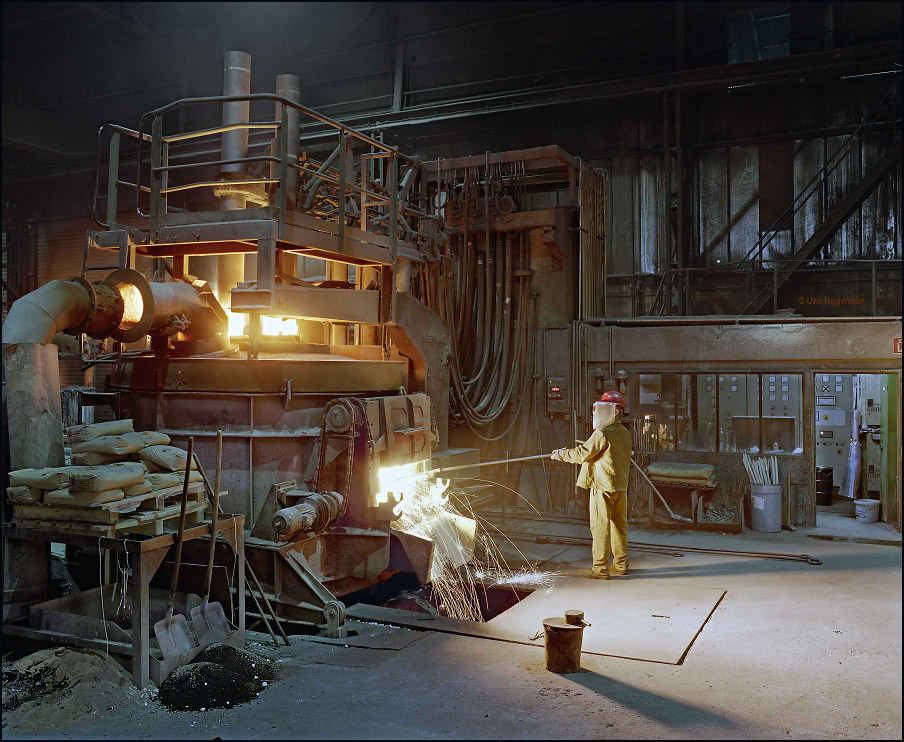
The C.Grossmann foundry in Solingen, founded in 1853, made it’s last casting on Friday.
Images here.
PILSEN STEEL
The steel mill in Pilsen was founded in 1859 by Ernst Graf Waldstein-Wartenberg.
In 1869 it was taken over by engineer Emil Ritter von Škoda.
In the 20th century it became the largest industrial company in Czechoslovakia producing steel, forgings, machinery, cars, tanks and guns.
In 2004 the steel making, forging and foundry branch was split off and sold to a Russian company.
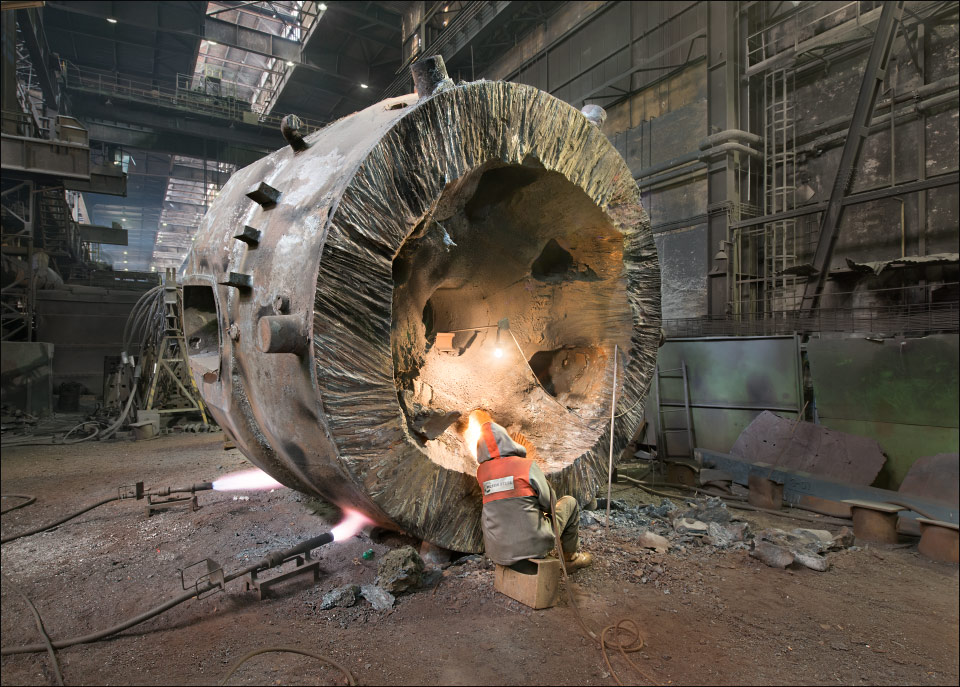
Steel Foundry
The steel foundry in Wetterzeube, Germany was founded in 1909 named „Stahlwerk Staeglich und Haberkorn Wetterzeube“. The foundry operated a cupola furnace and two crucible furnaces. These were replaced by an open hearth melt shop in 1921.
After the war the Wetterzeube works were nationalized and became part of the “VEB Stahlgiesserei Elstertal Silbitz” foundry combine in 1955.
In 1985 a 5 ton electric arc furnace, built in the 1950ies and relocated from Bösdorf near Leipzig, was installed.
After the privatization the Wetterzeube foundry became part of the GEW Gestaguss group from Velbert, Germany.
Images now at Stahlseite.
Foundry Capital
Velbert, Germany in the 1960ies was a busy town mainly living of it’s more than 30 foundries. 7000 people produced mostly small iron castings for household appliances, keys and the car industry.
Gestaguss is the last survivor of this once thriving business.
Further viewing at Stahlseite.
The Gestaguss foundry in Velbert was established in 1919 under the name Bergisch-Märkisches Eisenwerk (BME).
The BME specialized in malleable iron castings. Domestic appliances like meat grinders were built at their own workshop.
After 1990 the foundry filed bancruptcy several times and was taken over by the Gestaguss group in 2011.
The foundry produces castings with a weight of up to 30 kg from two cold blast cupola furnaces. It is one of the last malleable iron producers in Germany.

